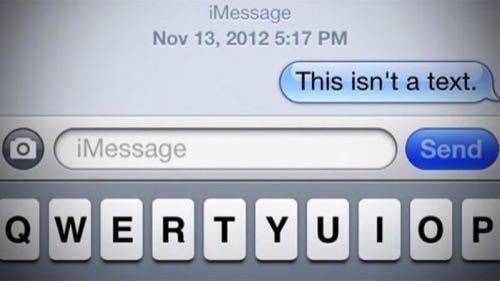
Good news: If you’re running a local crime syndicate from your iPhone, the authorities are going to have a hard time reading your texts. That’s because, as the DEA recently complained, the company’s iMessage protocol is encrypted end-to-end, which prevents law enforcement from spying on users’ messages, even with a court order.
This is good news for iOS-loving drug lords, but, more importantly, it’s a big win for digital privacy. And from Apple, no less.
With government requests for personal data on the rise, there are few guarantees in place that you or I won’t have our private communications snooped through. Since the Fourth Amendment hasn’t yet caught up with the lightning fast pace of technological change, some of the best privacy protections are often the ones implemented by tech companies themselves.
A Rare Privacy Win For Apple
Apple isn’t exactly known as a champion of consumer privacy. It’s not reckless either, but few people expect the company to defend users’ privacy any more than they the law or consumer sentiment requires.
For a company like Twitter, it’s different. Principles like user privacy and free speech have become important enough to the service’s core functionality that the company has no choice but to value and protect them. As a result, Twitter gets pretty high marks from privacy advocates.
Even Google, which has had its share of privacy snafus, is pretty good at being transparent and safeguarding its users’ privacy generally. Apple? It’s as mindful about privacy as it needs to be, but it’s not a chief motivator for the company.
By architecting iMessage the way it did, Apple created a messaging protocol more secure and private than standard text messages, which is how millions of people communicate every day. As we fire those texts back and forth, we’re all creating a digital trail that can be snooped upon or hacked more easily than we care to think about. But if they’re being and sent and received from iPhones running iOS 5 or later, those messages are invisible to wiretaps by law enforcement or other prying eyes.
Apple didn’t have to build iMessage with end-to-end encryption. Gmail isn’t encrypted this way, nor are the Facebook messages that are increasingly used like texts on mobile devices. Clearly, SMS text messages aren’t particularly well-secured either. Whether winning privacy points was its motivation or not, Apple definitely racks up a few for this.
Of course, Apple has had its own share of privacy controversies. Locationgate and Carrier IQ come to mind. Then there was the iMessage bug that accidentally exposed some users’ private messages, an embarrassing screwup was fixed in iOS 6.
Critics were rightfully quick to pounce on Apple for those things, but we need to be every bit as eager to applaud big tech companies when they get it right.

















